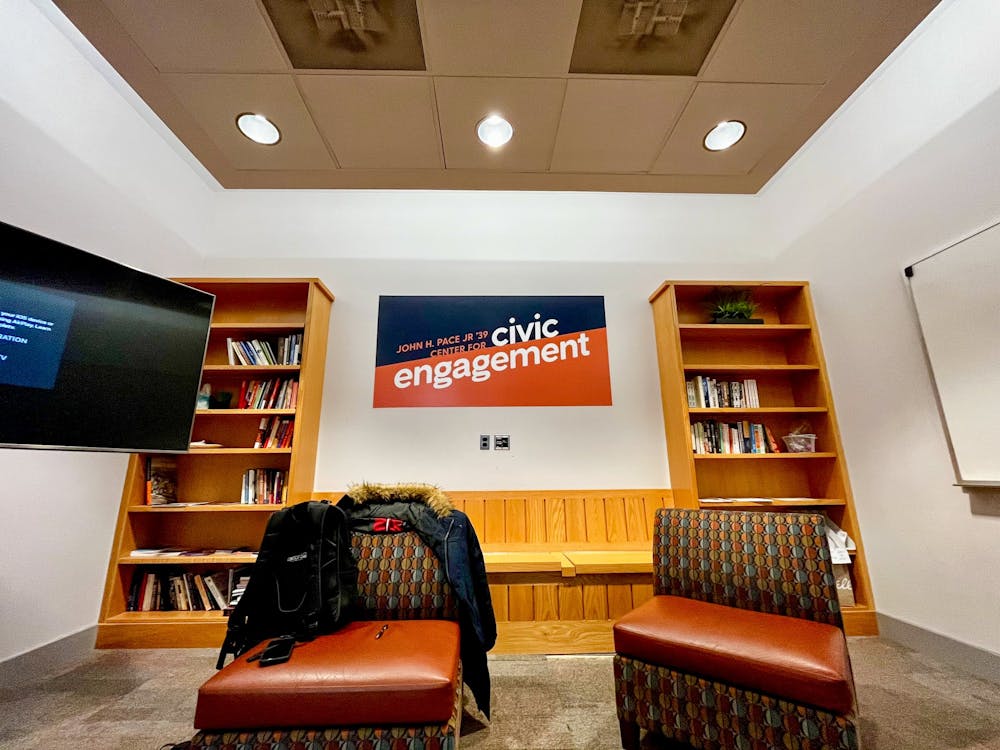At my graduation this June, the national anthem will not be sung.
Until 1969, Princeton had a tradition of singing “My Country, ’Tis of Thee” at commencement. Around the time of the Second World War, between 1943 and 1949, “The Star-Spangled Banner was sung. In 1970, however, student uproar over the Vietnam War forced many major changes to the commencement ceremony and weekend. The Prom was canceled. The Step Sing was canceled. The Beer and Steer Gala was eliminated. Caps and gowns became optional and were worn by only one out of every 10 students at commencement. FitzRandolph Gate was permanently opened. The salutatorian address was replaced with a dialogue about the conflict in Indochina. “My Country, ’Tis of Thee” was not sung.
Most of these changes have been reversed. Within one year, the Step Sing and Prom were reinstated and more than half of all students wore caps and gowns. By 1977, The New York Times described Princeton’s commencement as a “ceremony marked by tradition.” However, the tradition of beginning the ceremony with “My Country, ’Tis of Thee” or “The Star-Spangled Banner” had not and has still not been reinstated.
Over 40 years have passed since 1970. The Vietnam War ended a long time ago. The social and political circumstances that motivated the changes to graduation are no longer present. The fiery passions that overtook campus and galvanized the student body to push these changes are long gone. Yet despite a radically different political culture on campus, we have not reexamined the most meaningful change since 1970. It is about time that we reopen the issue and decide again whether we should sing the national anthem at graduation.
The practice of singing the national anthem at college graduations is widespread. Harvard, Columbia, Brown, Cornell, MIT and Duke sing it at their graduations. Stanford sings “America the Beautiful” at its graduation. Countless other schools also sing the national anthem. Why not Princeton?
Certainly, Princeton has benefited greatly from being in the United States. The academic freedoms so highly valued by Princeton are protected by the First Amendment to the United States Constitution and have been upheld by the judicial system. In Sweezy v. New Hampshire, Supreme Court Chief Justice Earl Warren wrote, “Teachers and students must always remain free to inquire, to study and to evaluate, to gain new maturity and understanding; otherwise our civilization will stagnate and die.” In the Supreme Court’s majority opinion of Keyishian v. Board of Regents, Associate Justice William Brennan wrote, "Our nation is deeply committed to safeguarding academic freedom, which is of transcendent value to all of us and not merely to the teachers concerned. That freedom is therefore a special concern of the First Amendment.” Few other countries have protected academic freedoms as strongly and consistently as America.
Additionally, one of the purposes of a liberal arts education is to give one the knowledge and academic foundation to contribute as a citizen. In her remarks at Opening Exercises when I was a freshman in 2008, President Tilghman said, “We’re preparing you to be responsible and engaged citizens of your own country and of the world.” She then went on to quote Adlai Stevenson II: “So you as educated, privileged people have a broad responsibility to protect and improve what you have inherited and what you die to preserve — the concept of government by consent of the governed as the only tolerable way of living.” Through this goal of preparing students to be responsible members of society, Princeton furthers the connection between itself and the United States and other democratic countries.
The most common counterargument to singing the national anthem at graduation is that Princeton in now an international university. One-tenth of undergraduate students are international, and courses are offered about all societies and cultures. Singing the national anthem would thus undermine Princeton’s broader mission of being in the service of all nations and might offend international persons in attendance. Nevertheless, Princeton is still an American university, and the vast majority of students are American. Princeton’s values and curriculum are rooted in the American and Western liberal arts tradition. We accept international students and study their cultures and societies because of the American and Western values of tolerance and free inquiry. We examine other cultures using the techniques and methodologies developed here. We have an international outlook only because of our American heritage.
I think it is time to restore the tradition lost in 1970 of acknowledging Princeton’s country and heritage. It is time to sing the national anthem during graduation and recognize that Princeton stands for more than itself.
David Schuster is a senior from Teaneck, N.J. He can be reached at dschuste@princeton.edu.








